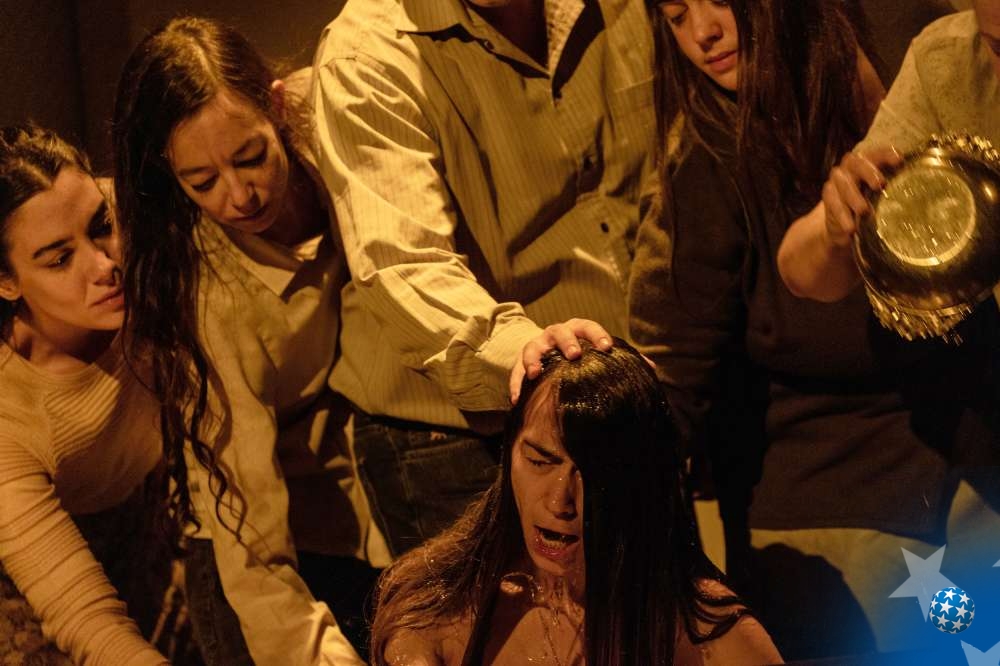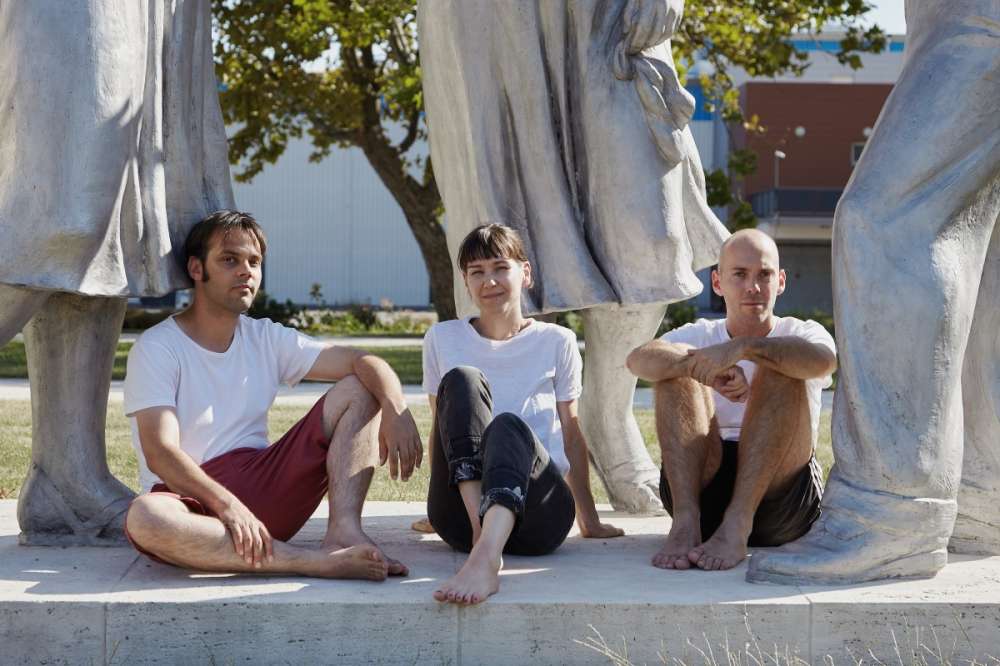Curators’ Statement
Goodbye, Lindita is only the second performance by the young artist Mario Banushi, a Greek actor and director originally from Albania. Inspired by the history of the Balkans and its funerary customs and practices, this performance brings a deeply intimate story about dealing with the loss of a loved one in a subtle and striking way. Through the story of one family, a series of strange events brings to the surface a world made of dreams and nightmares, that is, a twisted reality that has its own rules. Playing with images, visual codes, conscious and subconscious, Mario Banushi builds a unique poetics of his artistic expression and asks the question of what it means to say goodbye. How does life continue after the death of those we love? Since one of the missions of the festival is to promote new names in an international context, we think it is important that this artist and this performance will be included in this year's selection.
About the Performance
Goodbye, Lindita is the second part of a trilogy. While the first one, Ragada [stretch mark], focused on the notion of ‘coming’, this piece is a poetic farewell, a visual meditation on mourning. A family experiences grief in a muted, wordless manner, stupefied by their loss, until a series of uncanny events seems to suspend the boundaries between their world and that of the departed Lindita. Throughout the action the icon of a Madonna Nera is overlooking the proceedings and a Black woman frequents the house. Trivial house chores are followed by poetic images and rituals originating from Balkan traditions.
In the complete absence of dialogue, we witness a journey, an attempt to answer a question that is as old as humanity: how can we reconcile ourselves with death? In Goodbye, Lindita the end is also a beginning and the love shared an eternal sanctuary.
After a very successful run of shows in Athens, Bitef Festival will mark the beginning of a European tour (Germany, The Netherlands and others during the 2023-2024 season).
The Author
Mario Banushi (b. 1998) grew up in Albania before relocating to Athens, where he studied acting at the Athens Conservatoire Drama School. During his studies he collaborated with Euripides Laskaridis as production assistant in the performance THIRÍO (Athens Biennale 2018). After his graduation (2020) he directed the short film PRANVERA (TIFF 2021) and participated as an actor in the performances Marcel Duchamp (2022) by Nova Melancholia and City Lights (2022) directed by Amalia Bennett. An extract of his first performance RAGADA was presented at the exhibition Performance Rooms 2022 (Kappatos Gallery). The complete version was staged at Theatro sti Sala (Theatre in the Living Room).
From the Reviews
“Banushi’s play is highly personal: it was prompted by the image of his dead stepmother “surrounded by people saying goodbye” and by the death of his father three days later. But what we see on stage is a strange mixture of the mundane and surreal. [...] Grief has many different forms but what I took from the show was the idea that it will inevitably pierce the elaborate rituals that accompany death. At times I was reminded of the hyperrealism of the Bavarian dramatist, Franz Xaver Kroetz: Banushi makes great play of the way that families use telly-watching to nullify their emotions. At other moments Magritte came to mind.”
Michael Billington, The Guardian
With exceptional sensitivity and precision, wunderkind Mario Banushi has already managed, in this, his second production of the year, to create a highly poetic universe made up of unexpected images, dreamlike connections, eloquent objects, and pulsating bodies that come together harmoniously and sweep us along on a thrilling journey into the ineffable and the invisible, into what is worth asking and what is worth understanding. He illuminates our deepest mourning and searches for a new theatrical language that is born, paradoxically, out of its very absence.
Banushi highlights the constant struggle between old and new, repetition and difference, standardisation and rupture, mechanical reproduction and fruitful redefinition of needs, desires, and tensions.
Louisa Arkoumanea, Lifo
What has the 24-year-old artist achieved? He has succeeded in creating a felicitous work of art about loss and, without any words, in opening up a rift in space and time, a rift that is mournful but also polished, dreamlike and ultimately poetic, in which silent mourning embraces visual beauty.
Grigoris Bekos, To Vima
.jpeg)
_20230610_180821.jpeg)
.jpeg)
.jpeg)
.jpeg)
.jpeg)
.jpeg)

